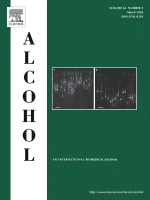A relevant number of trauma patients are intoxicated with alcohol at admission in trauma centers. Meanwhile, some studies provide data suggesting a profound influence of ethanol on the posttraumatic clinical course; others could not confirm these findings.
Knowledge of the influence of ethanol in a multiple trauma cohort is lacking. Therefore, we performed a retrospective outcome study of initially intoxicated multiple trauma patients in a German level-1 trauma center.
Patients with an Injury Severity Score greater than or equal to 16 and aged 16–65 years were included in our study. Ventilation time, duration of intensive care unit treatment, the course of cytokines, and the incidence of systemic inflammatory response syndrome (SIRS), sepsis, and multiple organ dysfunction syndrome (MODS) were analyzed. Total in-patient time, mortality, and the requirement for blood products were evaluated. Logistic regression analyses were performed.
Injury severity was comparable in both groups but there were more severe abdominal injuries in alcohol-intoxicated patients. The clinical course was comparable in both groups.
Alcohol consumption was not an independent risk factor to sustain SIRS (odds ratio [OR], 1.00; 95% confidence interval [CI], 0.59–1.70), sepsis (OR, 0.84; 95% CI, 0.54–1.31), or for mortality (OR, 1.08; 95% CI, 0.53–2.13). There was a trend toward an increased incidence of MODS in alcohol-intoxicated patients (OR, 2.74; 95% CI, 0.90–8.35).
Blood alcohol level at the time of admission is not a valuable marker for worse or improved outcome in multiple trauma patients.
There were no ethanol-related differences concerning overall injury severity; however, more severe abdominal injuries were found in alcohol-intoxicated patients.
There was no increased risk for posttraumatic complications in primarily alcohol–intoxicated multiple trauma patients.
Request Reprint E-Mail: zeckey.christian@mh-hannover.de
